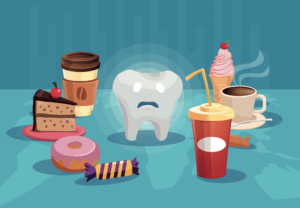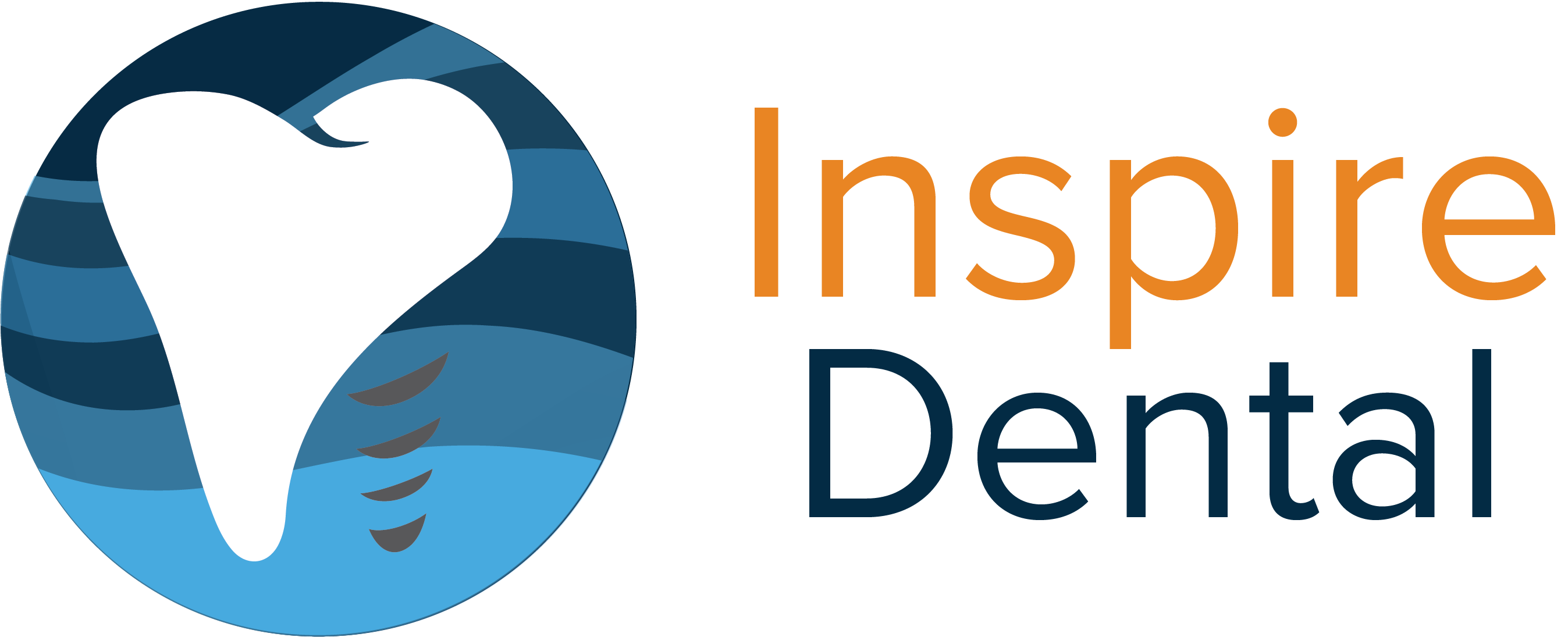Key Takeaways
- Nutritional counseling plays a vital role in maintaining good oral health
- A balanced diet rich in vitamins and minerals supports strong teeth and healthy gums
- Reducing sugar intake can significantly decrease the risk of tooth decay
- Calcium and vitamin D are essential for maintaining strong tooth enamel
- Hydration is crucial for producing saliva, which helps protect teeth from decay
- Working with a dentist or nutritionist can help create a personalized oral health diet plan
Nutritional counseling for oral health is an essential component of maintaining a healthy smile. By focusing on the foods we eat and their impact on our teeth and gums, we can significantly improve our overall oral health. Let’s take a closer look at how nutrition affects our mouths and what steps we can take to ensure we’re eating for optimal dental health.
The Link Between Nutritional Counseling for Oral Health

The food we eat plays a huge role in the health of our teeth and gums. What we put in our mouths directly impacts the strength of our teeth, the health of our gums, and even our breath. Poor nutrition can lead to a host of oral health problems, including tooth decay, gum disease, and bad breath.
How Food Affects Your Teeth

Every time we eat or drink, we’re exposing our teeth to potential harm. Foods high in sugar and carbohydrates feed the bacteria in our mouths, which produce acid as a byproduct. This acid can erode tooth enamel, leading to cavities and tooth decay.
On the other hand, certain foods can actually help protect our teeth. Foods rich in calcium and phosphorus can help remineralize tooth enamel, making it stronger and more resistant to decay. Crunchy fruits and vegetables can help clean teeth naturally by stimulating saliva production and scrubbing away plaque.
The Role of Vitamins and Minerals
Vitamins and minerals play a crucial role in maintaining healthy teeth and gums. Here are some of the most important ones:
- Calcium: Essential for strong teeth and bones
- Vitamin D: Helps the body absorb calcium
- Vitamin C: Supports healthy gums and helps prevent gum disease
- Vitamin A: Helps form tooth enamel
- Phosphorus: Works with calcium to build strong teeth
Ensuring you get enough of these nutrients through your diet or supplements can go a long way in protecting your oral health.
The Importance of Hydration
Staying hydrated is crucial for maintaining good oral health. Water helps wash away food particles and bacteria, and it’s essential for producing saliva. Saliva is our mouth’s natural defense against tooth decay, as it helps neutralize acids and remineralize tooth enamel.
The Dangers of Sugary Drinks
While staying hydrated is important, it’s crucial to be mindful of what we’re drinking. Sugary drinks like soda, sports drinks, and even fruit juices can be extremely harmful to our teeth. These drinks are often high in sugar and acids, which can erode tooth enamel and lead to cavities.
Creating a Tooth-Friendly Diet
Developing a diet that supports good oral health doesn’t have to be complicated. Here are some simple guidelines to follow:
Foods to Embrace
- Fruits and vegetables (especially crunchy ones like apples and carrots)
- Dairy products (cheese, milk, yogurt)
- Lean proteins (chicken, fish, eggs)
- Nuts and seeds
- Whole grains
Foods to Limit
- Sugary snacks and candies
- Starchy foods (chips, crackers)
- Acidic foods and drinks (citrus fruits, sodas)
- Sticky foods (dried fruits, caramel)
The Benefits of Professional Nutritional Counseling for Oral Health

While making dietary changes on your own can certainly help improve your oral health, working with a professional can provide even more benefits. A dentist or nutritionist can offer personalized advice based on your specific oral health needs and overall health status.
What to Expect from Nutritional Counseling for Oral Health
During a Nutritional Counseling for Oral Health session, you can expect to discuss your current diet, any oral health concerns you may have, and your overall health goals. Your counselor will then work with you to create a personalized plan that addresses your specific needs.
Integrating Nutritional Counseling for Oral Health into Dental Care
Many dental practices are now offering nutritional counseling as part of their comprehensive care. This approach recognizes the important link between diet and oral health and aims to address oral health issues at their root cause.
Common Oral Health Issues and Nutritional Solutions
Different oral health problems may require different nutritional approaches. Here are some common issues and how nutrition can help:
Tooth Decay
To prevent tooth decay, focus on reducing sugar intake and increasing consumption of foods rich in calcium and phosphorus. Drinking plenty of water and chewing sugar-free gum after meals can also help.
Gum Disease
A diet rich in vitamin C can help prevent and treat gum disease. Foods like berries, citrus fruits, and leafy greens are excellent sources of this important vitamin.
Dry Mouth
If you suffer from dry mouth, staying hydrated is key. You may also benefit from foods that stimulate saliva production, such as sugar-free gum or hard candies.
Nutritional Strategies for Different Age Groups
Nutritional needs for oral health can vary depending on age. Here’s a brief overview:
Children and Teens
Focus on calcium-rich foods to support developing teeth. Limit sugary snacks and drinks, and encourage healthy snacking habits.
Adults
Maintain a balanced diet rich in vitamins and minerals. Pay attention to acid erosion from foods and drinks, especially if you have sensitive teeth.
Seniors
As we age, dry mouth becomes more common. Stay hydrated and consider foods that are easy to chew if you have dental issues.
The Role of Supplements in Oral Health
While it’s best to get nutrients from whole foods, supplements can play a role in supporting oral health. Here’s a quick guide:
| Supplement | Benefit | Recommended Daily Intake |
|---|---|---|
| Calcium | Strengthens teeth and bones | 1000-1200 mg |
| Vitamin D | Helps absorb calcium | 600-800 IU |
| Vitamin C | Supports gum health | 65-90 mg |
| Coenzyme Q10 | May help with gum disease | 30-200 mg |
| Probiotics | Can help balance oral bacteria | Varies by strain |
Always consult with a healthcare professional before starting any new supplement regimen.
Meal Planning for Optimal Oral Health
Planning your meals with oral health in mind can make a big difference. Here’s a sample day of tooth-friendly eating:
| Meal | Foods | Oral Health Benefit |
|---|---|---|
| Breakfast | Greek yogurt with berries and nuts | Calcium, vitamin C, and crunchy texture |
| Lunch | Spinach salad with grilled chicken and cheese | Leafy greens, lean protein, and calcium |
| Dinner | Baked salmon with broccoli and brown rice | Omega-3s, fiber, and complex carbs |
| Snacks | Apple slices, cheese cubes | Natural tooth cleaning, calcium |
Remember to drink water throughout the day and consider chewing sugar-free gum after meals.
Tips for Implementing Nutritional Changes
Changing your diet can be challenging. Here are some tips to help you succeed:
- Start small: Make one change at a time
- Plan: Prepare healthy snacks in advance
- Stay hydrated: Keep a water bottle with you
- Read labels: Be aware of hidden sugars in foods
- Be patient: It takes time to form new habits
The Future of Nutritional Counseling for Oral Health in Dentistry
As we learn more about the connection between nutrition and oral health, we can expect to see nutritional counseling become an even more integral part of dental care. Some emerging trends include:
- Personalized nutrition plans based on genetic testing
- Integration of nutrition apps with dental care
- More emphasis on nutrition education in dental school curricula
Conclusion
Nutritional counseling for oral health is a powerful tool in maintaining a healthy smile. By understanding the link between what we eat and the health of our teeth and gums, we can make informed choices that support our overall oral health. Remember, a healthy diet is just one part of a good oral care routine. Regular brushing, flossing, and dental check-ups are also essential for keeping your smile bright and healthy.
